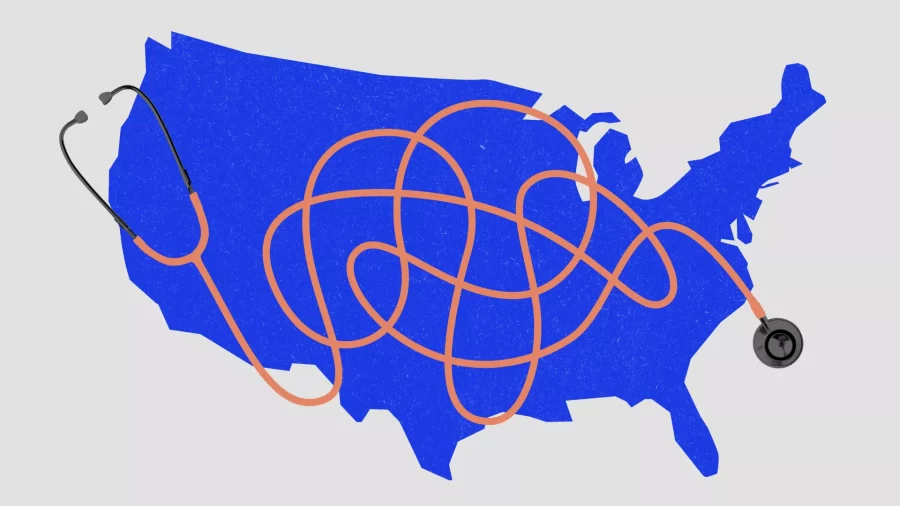Universal Healthcare in California
Healthcare is a human right, but universal access remains elusive to American citizens.
February 20, 2022
Healthcare is a necessity to maintain our health and seek immediate help when needed. Governments all over the world offer their own form of universal healthcare to provide people of any income with this basic human right. The United States remains one of the 43 countries that do not offer this type of healthcare to its citizens; recent efforts to propose a new type of state-wide care in California have been shut down.
First introduced in February of 2021, Assembly-member Ash Kalra’s AB 1400 outlines the plan for a potential state institution titled the California Guaranteed Health Care for All Act, or “CalCare.” CalCare would be the first statewide policy in the United States to offer a single-payer healthcare system to everyone regardless of an individual’s access to insurance.
Currently, the federal government requires each state to adhere to the Current Patient Protection and Affordable Care Act (PPACA), wherein each state is to provide qualified health benefit plans to residents through private insurance companies and healthcare firms. The proposed plan would eliminate the need for insured care and would pay for health coverage for everyone throughout the state.
The reality of the bill is that it wouldn’t put into place any official changes. Should it be passed, it would allow for a board of directors to be assembled of various healthcare professionals. This board would be granted the necessary powers and duties to establish CalCare, including employing staff and entering into contracts. However, the board would have until July 1, 2023, to administer and present an analysis that would conclude if CalCare could legitimately be implemented and financially sustained. A study conducted by the Assembly Appropriations Committee approximated that this bill would cost between $314 to $391 billion—California’s total spending budget for 2022 is only $262 billion.
Such a highly costly plan would have to be funded from somewhere. Single-payer health care systems such as the proposed CalCare are paid for through taxes. In response to the CalCare plan, the California Democratic Party proposed a new bill that would increase income tax rates for certain California businesses and high-earning individuals while preventing low-income earners from having to pay for the program targeted to assist them.
Kalra’s bill would have had to be voted on by January 31st to officially pass as state law. The bill was heavily supported by the California Nurses Association, which has been pushing for such a bill since Gov. Newsom campaigned heavily based around such a plan. But Kalra ultimately didn’t put the bill up for a vote because the votes simply “were not there” and would have been overturned.
This isn’t the first time such a plan has been turned away—a system proposed on a California ballot in 1994 was rejected, and former Gov. Schwarzeneggar twice vetoed a similar bill in the 2000s. In 2011, Vermont’s system had been the first enacted in the country but was later discarded because of the price tag.
Had the CalCare bill been passed in January, and eventually put into place over the course of the next few years, individuals and families who currently cannot afford private healthcare insurance would’ve been provided healthcare options they didn’t previously have. Luckily for these residents, Assembly-member Kalra says he “will not give up” on the potential of this bill that would help millions of Californians.
